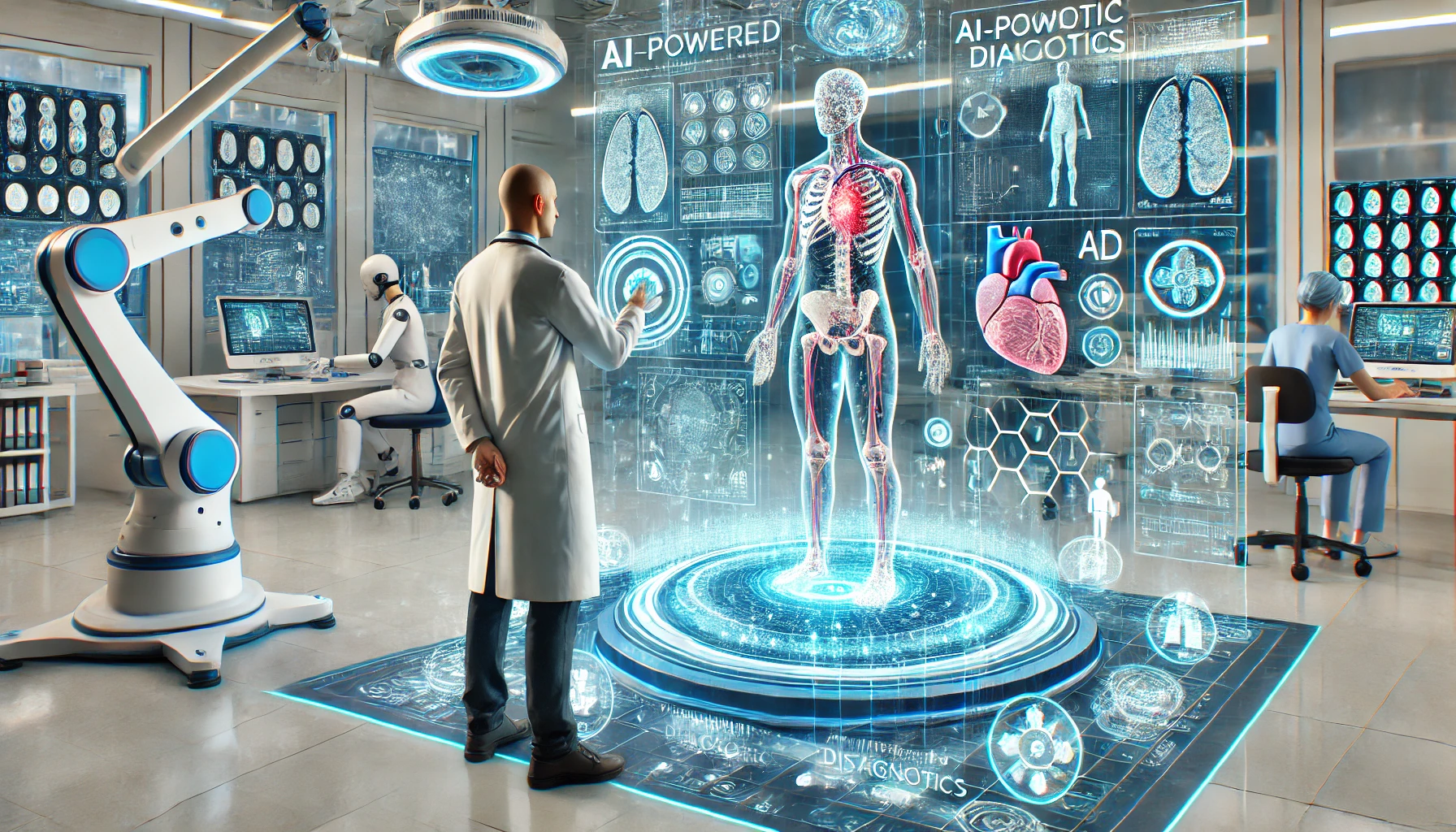AI-Powered Diagnostics: A New Development in Medical Technology
Healthcare is only one of the many industries that have undergone radical change since the introduction of artificial intelligence (AI). Disease diagnosis is one of the most important areas of healthcare where AI is being used. AI-powered technologies are revolutionizing the detection, diagnosis, and treatment of diseases by utilizing strong algorithms and enormous volumes of data.
AI’s Origins in Healthcare
Early computer systems that could analyze medical data were developed decades ago, sowing the seeds for artificial intelligence in healthcare. But AI didn’t really start to make major progress in medical diagnosis until recently, with developments in machine learning and deep learning. These methods provide computers the ability to see patterns, learn from large datasets, and generate precise predictions.
The Function of AI in Disease Making a diagnosis
• Complex medical data, including genetic sequences, patient records, and medical imaging, are analyzed by AI-powered diagnostic systems. AI can greatly increase the precision and speed of diagnosis by seeing minute patterns and abnormalities that human specialists might overlook.
• Medical Imaging: AI systems are able to precisely identify anomalies in medical pictures, such as MRIs, CT scans, and X-rays. AI, for example, can detect early indicators of diseases like cancer that are hard to see with the human eye.
• Genetics: AI is capable of analyzing genomic data to find genetic mutations linked to a number of illnesses. Early diagnosis and individualized treatment strategies may benefit from this.
• Predictive Analytics: AI can analyze patient data to predict the likelihood of developing certain diseases. This can help healthcare providers take proactive measures to prevent disease onset.
AI’s Effect on Human Life
AI-powered diagnostics have significant effects on human lives. AI has the potential to greatly enhance patient outcomes and lower mortality rates by facilitating early identification and precise diagnosis. AI can also lessen the workload for medical staff, freeing them up to concentrate on more difficult assignments and spend more time with patients.
Possible Difficulties and Adverse Reactions
Even though AI has a lot of potential, it’s important to be aware of the risks and difficulties that could arise. One worry is that AI algorithms may be biased, which could result in unfair or incorrect diagnoses. Furthermore, serious thought must be given to the ethical ramifications of applying AI in healthcare, including data security and privacy.
Enhancing Diagnostics Driven by AI
Several tactics can be used to increase the efficacy of AI-powered diagnostics even more:
• High-quality Data: Creating precise and objective AI models requires ensuring the diversity and quality of training data.
• Explainable AI: Creating AI models that can give concise justifications for their choices helps promote openness and confidence.
• Human-AI Collaboration: Promoting cooperation between human specialists and AI systems can result in more precise and trustworthy diagnosis.
AI’s Potential in Healthcare
AI in healthcare has a promising future. We may anticipate even more cutting-edge uses of AI in the detection and treatment of illnesses as the technology develops. AI has the ability to transform healthcare and raise millions of people’s quality of life in areas like medication development and personalized treatment.
We can use AI to build a healthy future for everybody if we solve its problems and realize its full promise.

Leave a Reply